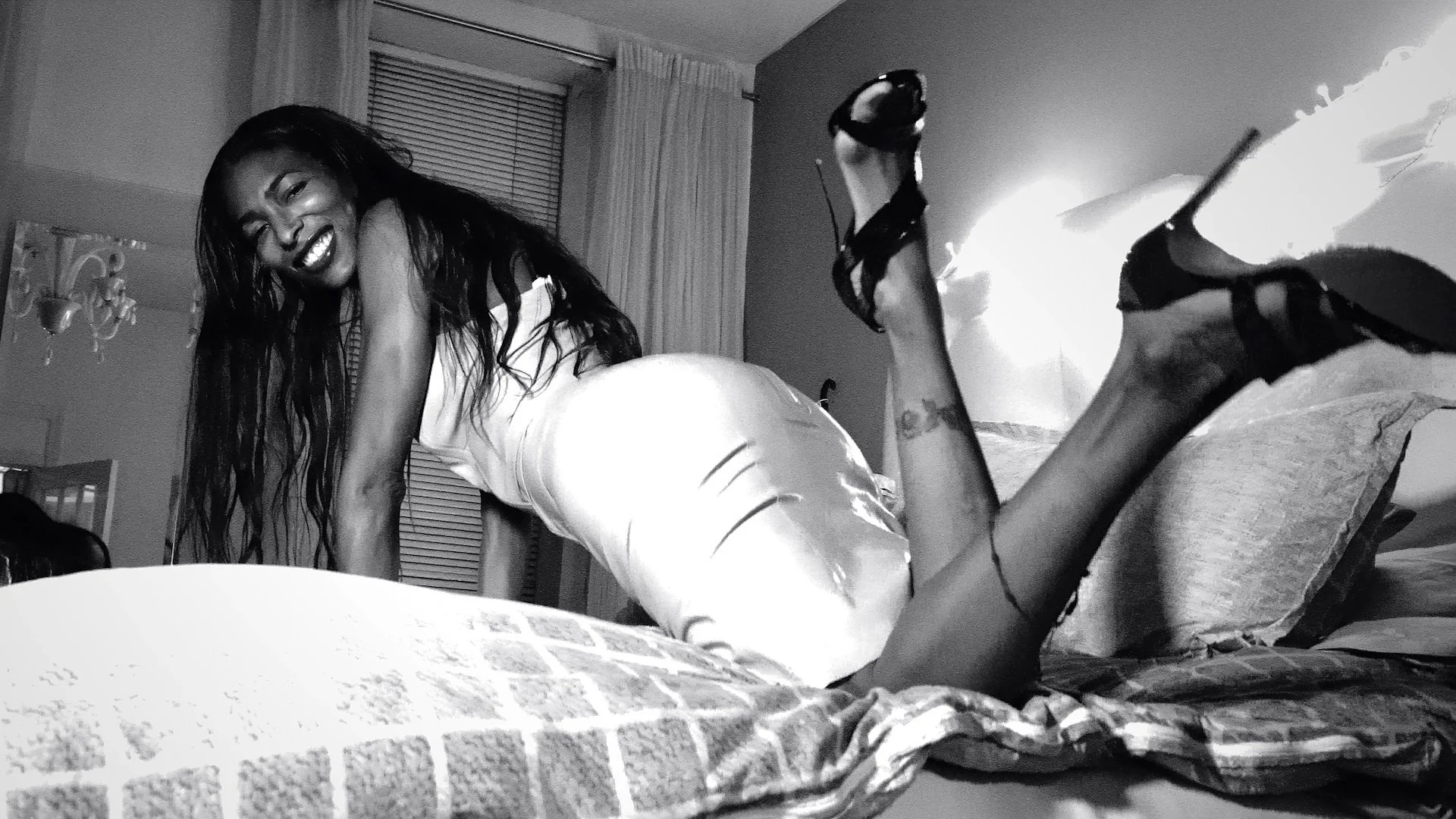Kokomo City: Four Black Transgender Sex Workers Tell It Like It Is
By Liam Lacey
Rating: A-
D. Smith is an Atlanta-based producer and songwriter in her mid-forties, who has worked with Lil Wayne, Kendrick Lamar, and Billy Porter among many others. She was the first transgender woman on the fifth season of the reality show, Love and Hip Hop: Atlanta.
After transitioning, she has explained in interviews, she was shut out of the music business, and forced to rely on friends for a place to stay. During this period, she borrowed a camera and made her first film.
Kokomo City profiles four Black trans sex workers in New York and Atlanta, all public personalities who Smith found on YouTube and Instagram. The film won two awards in the experimental Next section at Sundance earlier this year. Variety called it the Cinderella story of the festival, and the film went on to win an audience award at the Panorama section of the Berlin Film Festival.
The festival successes are entirely justified. Kokomo City is a vibrant, original work, shot in black and white, in a kaleidoscopic blend of monologues, conversations, and re-enactments. At a moment when the American right are obsessed with criminalizing health care for transgender people and erasing Black history, it’s also timely.
The women’s names are Daniella Carter and Dominique Silver from New York and Koko Da Doll and Liyah Mitchell from Atlanta. They are filmed at ease, dans le boudoir, on sofas, or in beds or bathtubs, looking glamorous.
They talk to the camera in ways that are perceptive, funny, and not remotely politically correct. Each of them explains how they entered the business to support themselves or their families when few other options were available and offer their critiques of social attitudes around sex and race.
They’re frank about their typical clientele, often macho men on the street who choose to be dominated in the bedroom. “They wanna see a pretty-ass woman with a big dick” says Koko. But the clients’ internal shame about their same-sex attraction can turn to violence. “Violence don’t happen before the orgasm. It happens after,” explains Dominique Silver.
The film also includes the perspective of men, in scenes that feel more slack and less pointed. There’s a songwriter named LØ who is contemplating meeting up with a trans woman he met online. He’s attracted to her ultra-femininity though he’s pretty sure he doesn’t want anything to do with anyone else’s penis.
One nightclub owner runs a trans night at his club, where trans women and the men who want to meet them can mingle. There’s a recurrent sequence features two men in a car, unidentified, who debate about the dynamics of straight-trans attraction and queer denial.
D. Smith is a musician, and her soundtrack is packed with music, both with her own material and the work of others, including the opening cut, Randy Crawford’s “Street Life.” But the song that gives the film its title is a scratchy slide guitar blues from 1935, “Kokomo Arnold’s Sissy Man Blues,” which has the memorable verse, “Lord, I woke up this mornin’, my pork-grinding business in my hand. Lord, if you can’t send me no woman, please send me some sissy man.”
“Sissy Man Blues,” or even “Pork Grinding Business” could have been catchy alternative titles. I’d also submit “Ron DeSantis’ Worst Nightmare,” in a film that portrays Black transgender women whose energy and astuteness refutes the ugly demagoguery the Republican presidential candidate.
Postscript: Kokomo City arrives during a period of increasing anti-trans violence, which has, regrettably, become part of the film’s story between the time of its festival premieres and theatrical release. Last April, one of the film’s stars, 35-year-old Koko Da Doll (given name Rasheeda Williams) was shot and killed by a 17-year-old in Atlanta.
In an Instagram post, director D. Smith wrote: “I created Kokomo City because I wanted to show the fun, humanized, natural side of Black trans women. I wanted to create images that didn’t show the trauma or the statistics of murder of transgender lives. I wanted to create something fresh and inspiring. I did that. We did that! But here we are again.”
Kokomo City. Directed by D. Smith, opens July 28 at the Toronto’s TIFF Bell Lightbox, Vancouver’s Van City, as well as Montreal and Quebec, with other Canadian cities through the summer.



